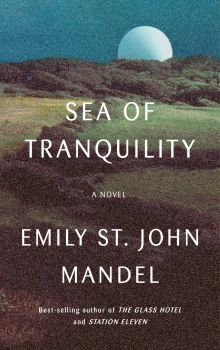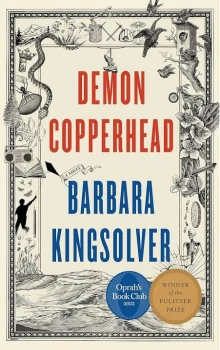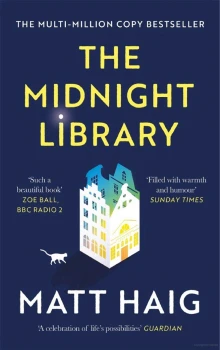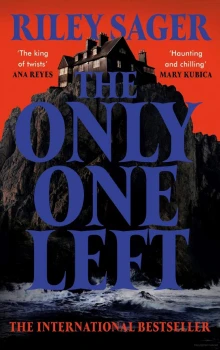4
The last dinner party began smoothly enough, but trouble started when the conversation turned, as ever and always, to the unimaginable splendor of the Raj. Edwin’s parents were born in India, Raj babies, English children raised by Indian nannies—“If I hear one more word about her goddamned ayah,” Edwin’s brother Gilbert muttered once, never finishing the thought—and raised on tales of an unseen Britain that, Edwin couldn’t help but suspect, had been slightly disappointing when they first laid eyes on it in their early twenties. (“More rain than I’d expected,” was all Edwin’s father would say on the matter.)
There was another family at that last dinner party, the Barretts, of similar profile: John Barrett had been a commander in the Royal Navy, and Clara, his wife, had also spent her first few years in India. Their eldest son, Andrew, was with them. The Barretts knew that British India was an inevitable detour in any evening spent with Edwin’s mother, and as old friends, they understood that once Abigail got the Raj out of her system, conversation could move on.
“You know, I so often find myself thinking of the beauty of British India,” his mother said. “The colors were remarkable.”
“The heat was rather oppressive, though,” Edwin’s father said. “That’s one thing I didn’t miss, once we came here.”
“Oh, I never found it terribly oppressive.” Edwin’s mother had a far-off look that Edwin and his brothers called her British India expression. There was a haziness about her that meant she was no longer with them; she was riding an elephant or strolling through a garden of verdant tropical flowers or being served cucumber sandwiches by her goddamned ayah or something, who knows.
“Nor did the natives,” Gilbert said mildly, “but I suppose that climate’s not for everyone.”
What inspired Edwin to speak just then? He found himself dwelling on the matter years later, at war, in the terminal horror and boredom of the trenches. Sometimes you don’t know you’re going to throw a grenade until you’ve already pulled the pin.
“Evidence suggests they feel rather more oppressed by the British than by the heat,” Edwin said. He glanced at his father, but his father seemed to have frozen, his glass halfway between the table and his lips.
“Darling,” said his mother, “whatever can you mean?”
“They don’t want us there,” Edwin said. He glanced around the table, at all the silent staring faces. “Not a great deal of ambiguity on that point, I’m afraid.” He listened to his own voice as if from some distance away, with wonderment. Gilbert’s mouth had fallen open.
“Young man,” his father said, “we have brought nothing but civilization to these people—”
“And yet one can’t help but notice,” Edwin said, “that on balance, they rather seem to prefer their own. Their own civilization, that is. They managed quite well without us for some time, didn’t they? Several thousand years, wasn’t it?” It was like being strapped to the roof of a runaway train! He actually knew very little about India, but he remembered having been shocked as a boy by accounts of the 1857 rebellion. “Does anyone want us anywhere?” he heard himself ask. “Why do we assume these far-flung places are ours?”
“Because we won them, Eddie,” Gilbert said, after a brief silence. “One assumes that the natives of England were perhaps not unanimously delighted by the arrival of our twenty-second great-grandfather, but, well, history belongs to the victors.”
“William the Conqueror was a thousand years ago, Bert. Surely we might strive to be somewhat more civilized than the maniacal grandson of a Viking raider.”
Edwin stopped talking then. Everyone at the table was staring at him.
“ ‘The maniacal grandson of a Viking raider,’ ” Gilbert repeated softly.
“Although one should be grateful, I suppose, that we’re a Christian nation,” Edwin said. “Imagine what a bloodbath the colonies would be if we weren’t.”
“Are you an atheist, Edwin?” Andrew Barrett inquired, with genuine interest.
“I don’t quite know what I am,” Edwin said.
The silence that followed was possibly the most excruciating of Edwin’s life, but then his father began speaking, very quietly. When Edwin’s father was furious, he had a trick of beginning speeches with a half-sentence, to catch everyone’s attention. “Every advantage you’ve ever had in this life,” his father said. Everyone looked at him. He began again, in trademark fashion, only slightly louder, and with deadly calm: “Every advantage you’ve ever had in this life, Edwin, has derived in some manner or another from the fact of your being descended from, as you so eloquently put it, the maniacal grandson of a Viking raider.”
“Of course,” Edwin said. “It could be so much worse.” He raised his glass. “To William the Bastard.”
Gilbert laughed, in a nervous way. No one else made a sound.
“I do beg your pardon,” Edwin’s father said, to their guests. “One might reasonably mistake my youngest son for a grown man, but it seems he’s still a child. To your room, Edwin. We’ve heard quite enough for one evening.”
Edwin rose from the table with great formality, said, “Good night, everyone,” went to the kitchen to request that a sandwich be delivered to his room—the main course hadn’t yet been served—and then retired to await his sentence. It came before midnight, with a knock on the door.
“Come in,” he said. He’d been standing by the window, staring fretfully out at the movements of a tree in the wind.
Gilbert came in, closed the door behind him, and sprawled into the ancient stained armchair that was among Edwin’s most treasured possessions.
“Quite the performance, Eddie.”
“I don’t know what I was thinking,” said Edwin. “Actually, no, that’s not true. I do know. I am absolutely certain there was not a single thought in my head. It was like a kind of void.”
“Are you unwell?”
“Not at all. Never better.”
“It must have been rather thrilling,” Gilbert said.
“It was, actually. I won’t say I regret it.”
Gilbert smiled. “You’re to go to Canada,” he said gently. “Father’s making arrangements.”
“I was always going to go to Canada,” Edwin said. “It’s planned for next year.”
“Now you’re to go a little sooner.”
“How much sooner, Bert?”
“Next week.”
Edwin nodded. He felt a touch of vertigo. There had been a subtle shift in the room’s atmosphere. He was going to go forth into an incomprehensible world and the room was already receding into the past. “Well,” Edwin said, after a moment, “at least I’ll still be on a different continent to Niall.”
“You’re at it again,” Gilbert said. “Do you just say whatever comes into your head now?”
“I recommend it.”
“We can’t all be so careless, you know. Some of us have responsibilities.”
“By which you mean a title and an estate to inherit,” Edwin said. “What a terrible fate. I’ll weep for you later. Will I receive the same remittance as Niall?”
“A little more. Niall’s is just meant to support him. Yours comes with conditions.”
“Tell me.”
“You’re not to come back to England for a while,” Gilbert said.
“Exile,” Edwin said.
“Oh, don’t be melodramatic. You were always going to go off to Canada, as you said.”
“But how long’s a while?” Edwin turned away from the window to stare at his brother. “I’d thought I could go to Canada for a time, establish myself somehow, and then come home at regular intervals for visits. What did Father say, exactly?”
“I’m afraid the phrase that sticks in memory is ‘tell him he’s to stay the hell out of England.’ ”
“Well, that’s rather…unambiguous.”
“You know how Father is. And of course Mother is going along with it.” Gilbert stood, and paused for a moment by the door. “Just give them time, Eddie. I’d be astonished if your exile were permanent. I’ll work on them.”





